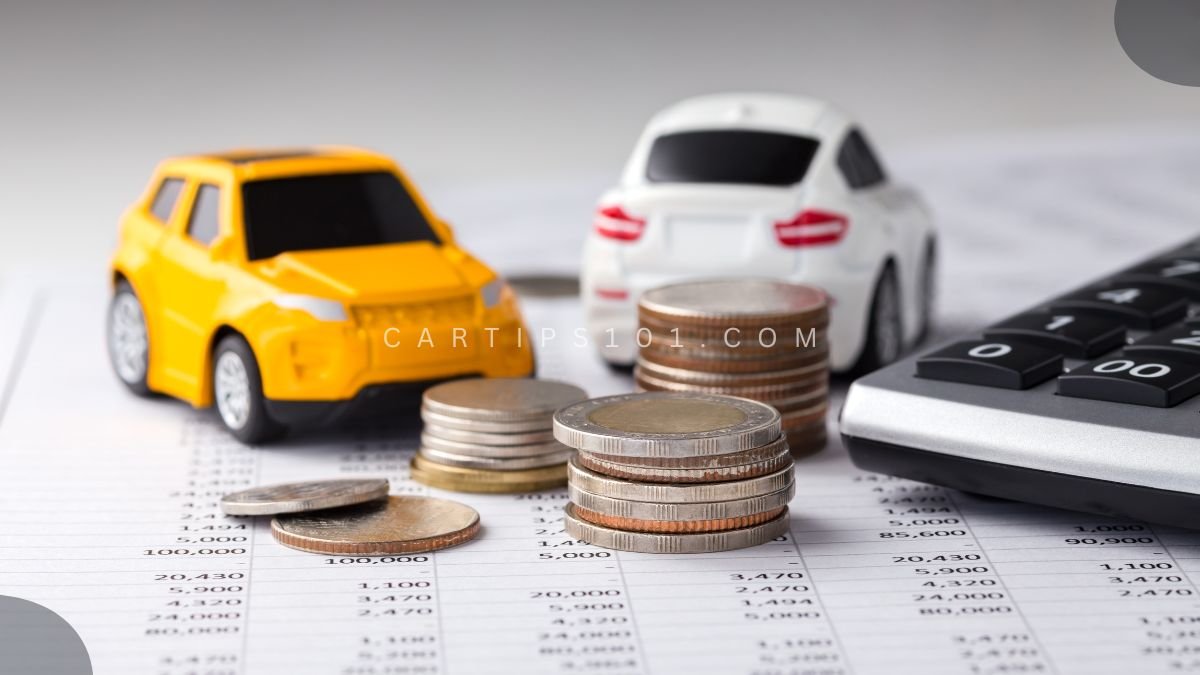Car financing can be a valuable option for many people looking to purchase a vehicle. When considering whether to lease or finance, it is important to weigh the benefits and drawbacks of financing a used car.
Benefits of Financing a Used Car
Financing a used car can offer several advantages over making a cash purchase. Here are some key benefits:
| Benefit | Description |
|---|---|
| Affordability | Financing allows you to afford a better car than you might be able to buy outright. |
| Low Down Payment | Financing often comes with lower down payment requirements compared to new car purchases. |
| Credit Building | Making regular payments on a financed vehicle can help build your credit rating. |
| Fixed Monthly Payments | You can budget more easily with a fixed monthly payment over the loan term. |
| Savings Preservation | Financing lets you keep your savings intact for other expenses or emergencies. |
| Ownership | At the end of the loan term, you own the car outright, giving you freedom and flexibility. |
Financing spreads the total cost of the vehicle over months or years, making it more manageable (East Coast Financing).
Drawbacks of Financing a Used Car
While there are benefits, financing a used car also has its downsides. Here are some drawbacks to consider:
| Drawback | Description |
|---|---|
| High Overall Cost | The total cost of financing can be higher due to interest payments. |
| Monthly Payments | You are required to make monthly payments, which can impact your budget. |
| Interest Rates | Poor credit can lead to expensive interest rates, increasing the overall cost. |
| Required Down Payment | A down payment is often needed, which can be a hurdle for some buyers. |
| Credit Impact | Missing payments may negatively affect your credit score. |
| Limited Negotiation | Financing can reduce your ability to negotiate a better price for the vehicle. |
| Ownership Delay | You do not own the car until the loan is paid off. |
| Repair Costs | After the warranty period, you are responsible for repair costs. |
| Depreciation | The vehicle may depreciate faster than you are paying it off. |
| Modification Restrictions | You may be unable to make modifications to the vehicle. |
| Mileage Fees | If you exceed mileage limits set by the financing agreement, additional fees may apply. |
| Additional Charges | You may incur charges for damages if the vehicle is not paid off. |
When deciding whether to lease a car or finance it, understanding these benefits and drawbacks can help you make an informed decision tailored to your needs.
Lease vs. Finance Comparison
When deciding between leasing and financing a car, several key factors come into play. Understanding the financial implications, duration and flexibility, as well as ownership and freedom can help you make an informed choice.
Financial Considerations
Leasing often presents a lower initial cost, resulting in reduced monthly payments compared to financing. This allows you to drive a vehicle that might be more expensive than what you could afford to buy outright (Travelers). However, financing a used car can be advantageous as well. Here are some financial aspects to consider:
| Factor | Leasing | Financing |
|---|---|---|
| Initial Cost | Lower | Higher |
| Monthly Payments | Lower | Higher |
| Ownership | No | Yes |
| Building Credit | No | Yes |
| End of Term | Return car | Own car |
Financing a used car lets you keep your savings and helps build your credit rating while ensuring you own the car at the end of the loan term (East Coast Financing).
Duration and Flexibility
Leasing typically involves shorter terms, usually ranging from two to four years. This allows you to drive a new vehicle more frequently without the long-term commitment of ownership. However, financing provides longer-term flexibility since you own the car outright at the end of the loan. Here are some comparisons:
| Aspect | Leasing | Financing |
|---|---|---|
| Term Length | 2-4 years | 3-7 years |
| Mileage | Restrictions apply | No restrictions |
| Customization | Limited | Full freedom |
| Trade-in Options | Not applicable | Possible |
With financing, you can remodel or customize the vehicle to your liking and drive without worrying about mileage limitations (Chase).
Ownership and Freedom
Ownership offers significant advantages. When you finance a car, you gain the freedom to modify it, drive as far as you want, and eventually own the vehicle outright. This sense of ownership can be appealing for many car enthusiasts.
In contrast, leasing does not provide these freedoms. You have to adhere to specific guidelines, including mileage restrictions and potential fees for excessive wear and tear.
| Freedom Aspect | Leasing | Financing |
|---|---|---|
| Ownership | No | Yes |
| Customization | No | Yes |
| Mileage Limitations | Yes | No |
| Trade-in or Hand Down | No | Yes |
Ultimately, the choice between leasing and financing will depend on your personal preferences and financial situation. Each option has its unique benefits and drawbacks, so weigh them carefully as you consider what is better for you: to lease a car or finance it.
Pros and Cons of Leasing a Car
Leasing a car can be an attractive option for many individuals. Understanding the pros and cons can help you determine if leasing is the right choice for you.
Lower Initial Costs
Leasing a vehicle typically involves lower initial expenses compared to financing a car purchase. Upfront costs for leasing may include a down payment, taxes, and fees, but these costs are generally lower than those associated with buying a vehicle. Monthly lease payments are usually lower than auto loan payments, making leasing a more budget-friendly option for some drivers.
| Cost Type | Leasing | Financing |
|---|---|---|
| Down Payment | Lower | Higher |
| Monthly Payments | Lower | Higher |
| Upfront Fees | Generally Lower | Generally Higher |
Maintenance and Repairs
Leasing often comes with advantages in terms of maintenance and repairs. Many lease agreements include warranties that cover routine maintenance and repairs for the duration of the lease. This means you won't have to worry about unexpected repair costs, which can make budgeting easier. However, you are typically responsible for normal wear and tear, and any damage beyond that may incur additional charges when you return the vehicle (Chase).
| Maintenance Responsibility | Leasing | Financing |
|---|---|---|
| Routine Maintenance | Often Covered | You Pay |
| Unexpected Repairs | Often Covered | You Pay |
| Wear and Tear Charges | May Apply | Not Applicable |
Mileage Restrictions
Leasing agreements generally limit the number of miles you can drive annually, usually between 12,000 to 15,000 miles. If you exceed this mileage, you may face additional charges, often around 25 cents per extra mile (Travelers). For those who drive extensively, this can be a significant disadvantage compared to financing, where there are typically no mileage limits.
| Mileage Limit | Leasing | Financing |
|---|---|---|
| Annual Mileage Allowance | 12,000 - 15,000 | No Limit |
| Charge for Extra Miles | ~25 cents/mile | No Charge |
Evaluating these factors can aid in your decision-making process regarding whether to lease or finance your next vehicle.
Factors Influencing Lease vs. Finance Decision
When deciding whether to lease or finance a car, there are several factors to consider that can influence your decision. Understanding your vehicle usage, financial implications, and ownership expectations will help you make an informed choice.
Vehicle Usage and Duration
The way you plan to use your vehicle and how long you intend to keep it play a crucial role in your decision. Leasing is often more appealing for those who prefer short-term commitments and enjoy driving the latest models with cutting-edge technology. Leases typically have shorter durations than purchase financing, making them suitable for individuals who value innovation and lower maintenance costs (Chase).
| Factor | Lease | Finance |
|---|---|---|
| Duration | 2-3 years | 3-7 years |
| Ideal for | Frequent upgrades | Long-term ownership |
| Mileage | Often limited | Unlimited |
Financial Implications
Leasing a car generally results in lower monthly payments compared to financing, enabling you to drive a more expensive vehicle for less money each month (Travelers). However, financing allows you to eventually own the car, providing you with an asset at the end of the loan term.
| Cost Comparison | Lease | Finance |
|---|---|---|
| Monthly Payment | Lower | Higher |
| Total Cost | Lower upfront, ongoing payments | Higher initially, but eventual ownership |
| End of Term Value | No ownership | Full ownership |
Vehicle Ownership
Ownership is a significant factor when weighing your options. Financing a car means you own it outright once the loan is paid off, which grants you the freedom to customize, modify, or trade in the vehicle as you see fit. You also won't need to worry about mileage limitations that often come with leases. In contrast, leasing does not provide the same level of freedom, as the vehicle must be returned at the end of the lease term.
| Ownership Aspect | Lease | Finance |
|---|---|---|
| Ownership Status | No ownership | Full ownership after payments |
| Customization | Not allowed | Allowed |
| Mileage Restrictions | Yes | No |
By considering vehicle usage, financial implications, and ownership, you can better determine what is better to lease a car or finance based on your individual needs and lifestyle.
Financing Options Overview
When considering how to fund your vehicle, you have several options available. Each financing method has its own advantages and disadvantages. Understanding these can help you decide what is better to lease a car or finance based on your personal situation.
Dealer Financing
Dealer-arranged financing can be appealing, particularly for customers with compromised credit or a poor credit history. Dealers have access to multiple lenders who offer products for those struggling to secure direct financing from traditional banks or credit unions.
| Pros | Cons |
|---|---|
| Access to multiple lenders | Often higher interest rates |
| Convenience of one-stop shopping | May include hidden fees |
| Possible promotional offers | Less negotiation power |
However, it is important to be cautious, as these loans often come with pitfalls, such as higher interest rates (Spero Financial).
Bank Financing
Financing a car through a bank can be a solid option, especially if you have a strong relationship with your bank. Banks may offer lower interest rates than dealerships and provide incentives if you conduct all your banking with them.
| Pros | Cons |
|---|---|
| Potentially lower interest rates | Rates may still be higher than average |
| Established relationship benefits | Less flexibility in terms |
| Clearer fee structures | May require a lengthy approval process |
However, the interest rates offered by banks can sometimes be higher than the national average (Spero Financial).
Credit Union Financing
Credit unions are often recognized for providing lower interest rates compared to traditional banks. They tend to be more flexible in evaluating individual circumstances and are focused on building long-term relationships with their members.
| Pros | Cons |
|---|---|
| Lower interest rates | Membership requirements may apply |
| Personalized service | Limited branch locations |
| Community-focused | May have fewer financing options |
Credit unions also typically offer superior member service and are invested in the local community (Spero Financial).
By evaluating these financing options, you can determine which method aligns best with your financial situation and vehicle needs.
Specialized Financing Methods
When considering your options for acquiring a vehicle, it’s important to understand the different specialized financing methods available. Here, we'll explore Personal Contract Purchase (PCP), Hire Purchase (HP), and compare personal loans with leasing.
Personal Contract Purchase (PCP)
Personal Contract Purchase (PCP) is a popular choice due to its typically lower monthly payments compared to traditional auto loans. Instead of financing the full value of the car, you finance the vehicle's depreciation over the contract term. At the end of the agreement, you have the option to make a final payment, known as a balloon payment, if you want to own the car outright (Road Angel Group).
| Feature | Details |
|---|---|
| Monthly Payments | Lower due to financing depreciation |
| Final Payment (Balloon) | Required to own the car at the end of the term |
| Ownership | Not automatic unless balloon payment is made |
Hire Purchase (HP)
Hire Purchase (HP) agreements often require an upfront deposit, typically around 10% of the car's value. This deposit can help lower your monthly payments. Unlike PCP, with HP, you are working towards full ownership of the vehicle from the start of the financing term.
| Feature | Details |
|---|---|
| Upfront Deposit | Typically around 10% of car's value |
| Monthly Payments | Higher than PCP as you are financing full value |
| Ownership | You own the car after the final payment |
Personal Loans vs. Leasing
Personal loans offer several advantages, such as simplicity and immediate ownership. You have the flexibility to choose any vehicle you want, as the loan is not tied to a specific car. However, it is essential to evaluate your financial situation carefully, compare loan offers, and ensure that monthly payments fit comfortably within your budget (Road Angel Group).
| Feature | Personal Loans | Leasing |
|---|---|---|
| Ownership | Immediate ownership | No ownership until lease ends |
| Payment Structure | Fixed monthly payments for the loan term | Payments for use of the car only |
| Flexibility | Choose any vehicle | Usually limited to specific vehicles |
Understanding these specialized financing methods can help you determine what is better to lease a car or finance based on your personal preferences and financial circumstances.
Final Thoughts on What Is Better: To Lease a Car or Finance
Deciding whether to lease or finance a car depends on your financial situation, driving habits, and long-term goals. Leasing might be ideal for those who prefer driving a new vehicle every few years and want lower monthly payments. However, financing can be more cost-effective in the long run, especially for those who plan to keep their car for an extended period. It's essential to weigh the pros and cons of each option, considering factors like total cost, vehicle depreciation, mileage restrictions, and your personal preferences. Ultimately, choosing the right path requires a thorough evaluation of your needs and financial capacity.
FAQs About "What Is Better to Lease a Car or Finance"
Q: What are the main differences between leasing and financing a car?
A: Leasing a car usually involves lower monthly payments and allows you to drive a new car every few years. However, you do not own the vehicle at the end of the lease term. Financing, on the other hand, involves higher monthly payments, but you will own the car once the loan is paid off. With financing, you can customize the car and drive without worrying about mileage restrictions, whereas leasing often comes with mileage caps and requires you to return the car in good condition.
Q: What are the benefits of leasing a car?
A: The benefits of leasing a car include:
- Lower monthly payments compared to financing.
- Driving a new car every few years.
- Fewer repair costs since the car is usually under warranty.
- Potential tax benefits for business use.
- Reduced upfront costs compared to buying a car.
Q: What are the drawbacks of financing a car?
A: Financing a car can have several drawbacks:
- Higher monthly payments compared to leasing.
- Depreciation of the car’s value over time.
- Maintenance and repair costs increase as the car ages.
- Longer commitment if you decide to sell or trade the car before the loan is paid off.
- Interest charges can add to the total cost of the vehicle.
Q: Is leasing a car cheaper than financing in the long term?
A: In the short term, leasing a car is generally cheaper than financing because of lower monthly payments and minimal upfront costs. However, in the long term, financing might be more economical if you plan to keep the car for a long period. With financing, you eventually pay off the loan and own the vehicle, avoiding the perpetual cycle of monthly payments associated with leasing.
Q: How do mileage restrictions work in car leases?
A: Car leases often come with mileage restrictions, typically ranging from 10,000 to 15,000 miles per year. If you exceed the mileage limit, you will be charged a fee for each additional mile, which can add up quickly. It is important to choose a mileage limit that fits your driving habits to avoid extra costs. If you frequently drive long distances, financing might be a better option to avoid these fees.
Q: What factors should I consider when choosing between leasing and financing a car?
A: When choosing between leasing and financing a car, consider the following factors:
- Your budget and ability to make monthly payments.
- How often you want to drive a new vehicle.
- Your typical annual mileage.
- Desire for ownership versus temporary use.
- Potential tax benefits and personal financial goals.
- The cost of maintenance and repairs over time.
Image Source: Paid image from CANVA





